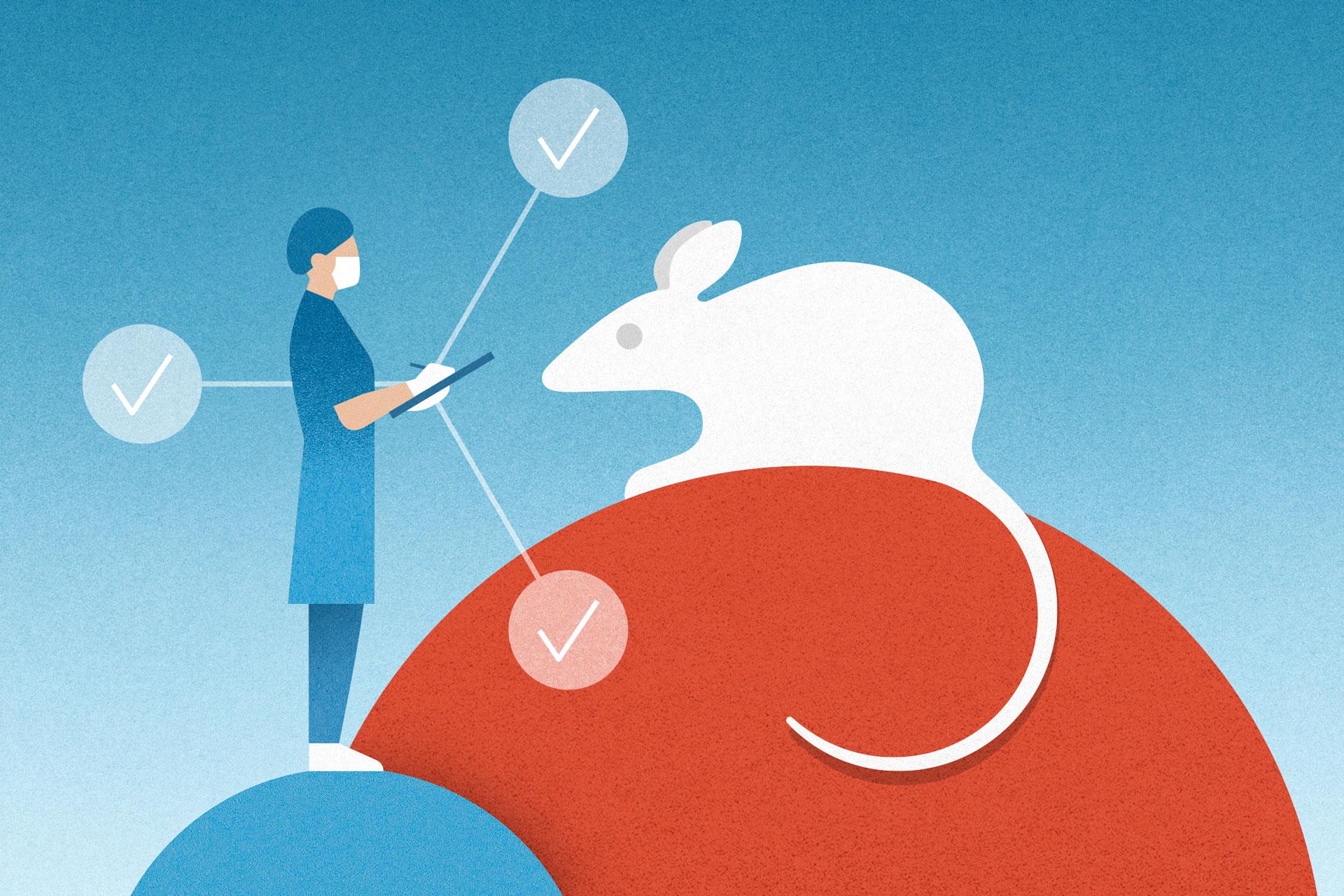SNSF opposes initiative to ban animal and human experimentation

The Swiss National Science Foundation (SNSF) strives consistently and continuously to improve the quality of research. A ban on animal and human experiments would massively restrict the opportunity to gain knowledge and adversely affect Switzerland as a research hub.
On 13 February 2022, the Swiss electorate will vote on the initiative to ban animal and human experiments. Acceptance of the initiative would severely restrict research on both animals and humans. This would impact clinical research as well as experiments in psychology and sports science, among other areas. In addition, research on how farm animals and pets should be kept and what medical care they should receive would no longer be allowed.
Obstructing medical progress
Animal testing is still necessary to develop new medical treatments. Alternative methods, such as cell cultures, are not always an option. What is more, newly developed drugs and treatments need to be tested on healthy volunteers for safety reasons, and their efficacy must be assessed in comparison with groups of people who were administered a placebo. If accepted, the initiative would significantly hinder researchers’ efforts to improve medical treatments.
In the event of a complete ban on animal testing and research on humans, Switzerland would be unable to keep pace with international research. For these reasons, the SNSF supports the position taken by the Swiss higher education institutions (swissuniversities) and the Swiss Academies, which is to reject the initiative.
Advancing the 3R principles
Based on its high quality standards for research projects, the SNSF complies with the "3R" principles for the humane treatment of animals. These guidelines, developed by the research community and decreed by the federal government, stipulate that whenever possible animal experiments should be replaced by alternative approaches ("replace"), the number of animals should be kept as small as possible ("reduce") and the animals should be subjected to as little stress as possible ("refine"). The research community is constantly working to improve these approaches.
With this in mind, in May 2021 the SNSF launched a call for the National Research Programme "Advancing 3Rs – Animals, Research and Society" in accordance with its government mandate. The programme aims to shed light on the tensions surrounding animal welfare and to improve biomedical research. The projects to be funded will be chosen in April 2022. The research phase will last until 2027, and the programme will publish its final report and recommendations in November 2028.
Improving clinical trials
The SNSF also promotes high quality standards in clinical research. The special programme for Investigator Initiated Clinical Trials (IICT) supports clinical studies on underresearched topics that fill both a medical and a social need. Though important for patients, such study topics remain outside the focus of industry. In 2021, representatives of patient organisations are having a say in project selection for the first time. The SNSF has thus ensured that the submitted projects adequately address the needs of patients.
In addition, the MD-PhD programme and the Protected Research Time for Clinicians initiative support research-oriented physicians. BioLink promotes the networking of biobanks, thereby facilitating research into diseases. The SNSF also co-funds the Swiss Clinical Trial Organisation, which aims to improve the quality of clinical trials. The wellbeing of individuals takes precedence over science and society through the Swiss Federal Human Research Act and the Helsinki Declaration, signed by Switzerland.